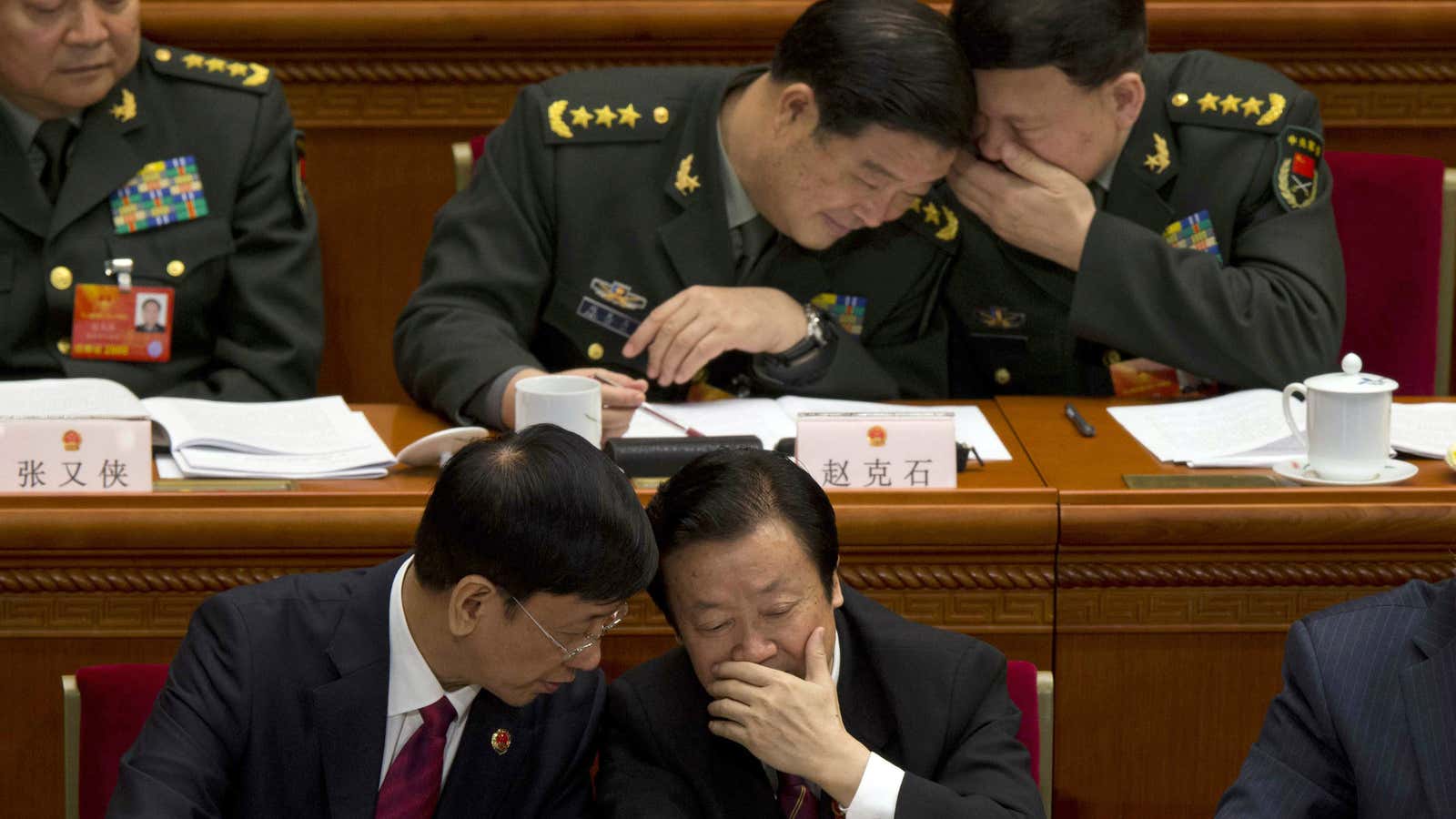When Charles Xue appeared on Chinese television in September 2013, the entrepreneur and anti-kidnapping activist confessed to committing a then-unusual crime: spreading “rumors” online. Since then, “rumors” has become a thinly veiled codeword for information the government considers politically sensitive, ranging from unresolved murder cases to pro-Islamic sentiment.
But a recent report by Jason Ng of Toronto’s The Citizen Lab highlights another facet to the war on rumors—innocuous gossip is getting censored right alongside the usual rumors of political scandal.
The report measures censorship on WeChat, a popular messaging app with over 500 million users worldwide, most of whom reside in mainland China. While the core of the app remains sending text messages, it has evolved into a social network of its own right, where users can register for “official accounts” and broadcast messages to thousands of users. As of the end of 2014, WeChat had over 8 million of these accounts.
According to a non-random sample of 36,000 posts from over 10,000 accounts, 1.55% of posts sent through official accounts get censored while the user’s account remained active.
Most of the posts that get flagged for censorship contain words that reference politically sensitive people, issues, or events. “Zhou Yongkang”, the recently disgraced former Politburo member, ranks as the most highly censored keyword on WeChat, when measured by deriving the ratio for term’s appearance in scrubbed post versus an uncensored, “left alone” post.
But the researchers also discovered that many the censored posts have nothing to do with government or society at all.
“A number are more typical of sensationalism or tabloid gossip, for instance the claim that Jack Ma’s son had died or the story about a 5-year-old girl developing liver cancer due to a diet of ramen,” writes Ng. “Other articles that do not appear necessarily destabilizing or particularly critical of Chinese officials or policy include posts related to historical revisionism or historical figures, as well as general commentary of political news.”
Not every rumor on WeChat gets scrubbed, but the ones that do share some similarities. Bogus health claims, for example, are a common target for scrubbing. “Bra = curse” reads one headline of a removed message, which claims that padded bras prevent “breast breathing” and cause cancer.
The report’s authors hesitate to decisively argue why the government is exerting pressure to clamp down on rumors as harmless as they are baseless. But one tentative explanation sheds some light—by quashing genuinely sensitive information and tabloid fodder with the same fist, the government is instilling distrust towards media in general. Real news that’s damaging to the party’s reputation is as much a rumor as the the implausible “junk food cancer.”
“… [The] online antirumor campaign serves as a valuable tactic for not only curtailing independent media sources through censorship but also for the larger goal of impugning the veracity of all independent, “unapproved” media sources, tilting the balance over control back in the government’s favor,” writes Ng.
The Chinese government will never be able to control the media completely. But it can influence the way people perceive it.
